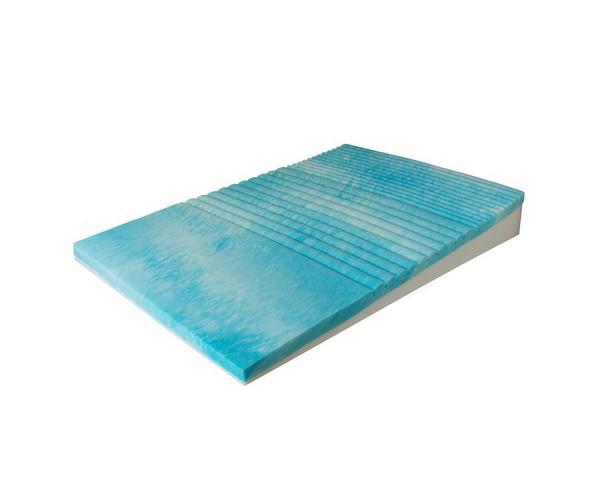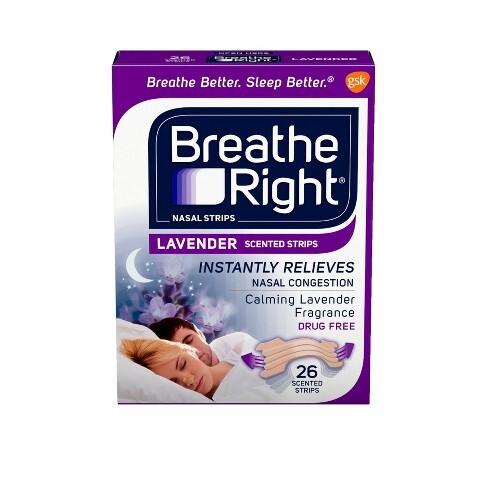If you’ve ever had a bedmate bop you in the middle of the night and tell you to tone it down, then Smart Nora is for you. This device uses a microphone to detect your nighttime noises. Then a silent pump inflates or deflates your pillow accordingly to adjust your head position.
Already got a favorite pillow? Don’t worry. Smart Nora works with any existing pillow on the market.
$359 | Find Out More
When snoring is a result of nasal issues, nasal strips that help keep airways open can be a quick fix. But strips require adhesive, which can cause skin irritation. Plus, purchasing pack after pack can add up.
Enter the U-shaped Nasilator. It inserts into the nostril to gently hold nasal passages open. The device is made of soft and flexible FDA-approved material and is reusable for up to 120 nights of sleep. No adhesive necessary. A pack of four will last for more than a year of regular use. And the Nasilator’s compact design makes it perfect for travel, as opposed to packing your favorite anti-snoring pillow.
$19.99 | Find Out More
It may sound a little strange — even barbaric — at first, but these strips are basically lip-shaped pieces of tape meant to keep lips sealed overnight. Ideal for those who snore because of an open mouth, the strips — which come 28 to a pack — encourage nose breathing by keeping the mouth closed and allowing the tongue to rest on the roof of the mouth.
Each is made with gentle, residue-free adhesive, with a small mouth slit to allow for some mouth breathing as necessary. As a bonus, some users say that it helps with morning breath, as the mouth doesn’t hang open to dry out all night, which more than makes up for the idea of taping your mouth shut.
$19.97 | Find Out More
Wedge pillows provide an incline to help keep gravity from pulling your tongue and other soft tissues into the back of your throat. But wedge pillows with too steep an incline can do a number on your neck and shoulders.
Thankfully, the Thomasville GelLux Body Wedge Pillow offers a long, gradual slope to nix any snoring, without torquing your cervical spine. Wedge pillows are also great for combating gastroesophageal reflux disease (GERD) symptoms. As an added bonus, the GelLux pillow is made of materials that help you sleep cool.
$ 74.40 | Find Out More
The Ergo Extend Adjustable Smart Base is the ultimate offering from the Temper-Pedic mattress gurus. The base automatically detects if you’re snoring at night. If so, it will raise your head into a position that helps cut down on all that snorting snuffling.
Plus, the Ergo Extend offers sleep coaching based on analytics collected over time. For a truly personalized experience when sleeping with a partner, opt for the split king, which allows each person to position their mattress at the optimal setting. The Ergo Extend is definitely an investment, but you can also find more economical snore-busting adjustable bases to tilt your head to new heights.
From $1,999 | Find Out More
Inhale the relaxing scent of lavender as you drift off to sleep. These nasal strips non-invasively lift nasal passages into an open position to relieve stuffiness that causes snoring. This helps you avoid mouth breathing, which can exacerbate those not-so-good vibrations in the back of the throat. These are great to have on hand if you’re a seasonal snorer, or when you’ve got a case of the sniffles.
From $10 | Find Out More
If you’re a diehard back sleeper and you’ve been wanting to switch to side snoozing, this Tempur-Pedic pillow will help make you more comfortable as you train yourself to turn over. The wave-like design will cradle your head and bolster your neck, keeping your spine in alignment when you’re on your side. The cooling pillow is equally as comfortable for back sleepers, and the bolster may just solve your snoring snafu no matter which position you’re in.
$149 | Find Out More
PureSleep is an FDA-cleared molded mouthpiece that holds your lower jaw slightly — but comfortably — forward to prevent too much relaxation of the soft tissues in your upper airway.
First, you assemble an upper and lower jaw component together according to your bite type. Then, to mold the device to your mouth, you plunge PureSleep in boiling water, safely remove it, wait, and then bite down to make an impression of your chompers. A perfect fit!
$59.95 | Find Out More
How to Choose for Yourself
If snoring is a more frequent concern, you may wish to invest more money in a remedy. Personal preference also plays a role. When choosing a product — or products — to fit your needs, consider these factors:
- If you’re only prone to snoring after a few beers or when you have a stuffy nose, for example, the economical, portable nasal device or even a pack of nasal strips will likely do.
- Do you travel? You may want a portable option for on-the-go, plus something more permanent at home.
- If you think a nasal or dental device will distract you from optimal sleep, then a new pillow investment may be your best bet.
- If it turns out that head elevation is the ultimate cure-all, then you can save up for an adjustable base as your Holy Grail snorelution.
- It’s fine to use more than one product, like a wedge pillow and a nasal or dental option, if a combo works best for you.
When Snoring Becomes a Medical Concern
The occasional snorechestra is no big deal. Although a sleep partner might have something to say about the performance. “If you snore regularly,” Nunez cautions, “it could be due to sleep apnea, a dangerous health condition.”
Possible signs of sleep apnea include gasping or choking while sleeping, pauses in breathing while sleeping, frequent waking from sleep, daytime sleepiness, or a headache or sore throat in the morning. If you have these symptoms, you should talk to your healthcare provider about your snoring to receive an evaluation and to find out if you need to wear a CPAP machine.
“A CPAP mask is a tight-fitting mask that applies pressure to the patient’s throat,” Wiseley explains. “This pressure helps hold open the airway so that it doesn’t collapse and block air movement into the lungs.”
Don’t want snoring to ruin your relationship? You may want to consider a “sleep divorce,” a growing trend that focuses on improving couples co-sleeping and their relationships. Plus, learn how to sleep on your side, the best position for snoring and sleep apnea.
☾
If you found this article helpful, consider sharing it on Twitter, Facebook, Pinterest, or Instagram or emailing it to any friends or family members who might benefit from a better night’s sleep. Sharing is caring!









